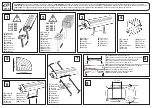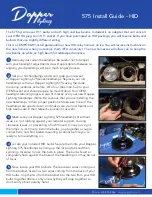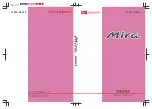
IF YOUR ENGINE OVERHEATS
In any of the following situations, you can reduce the potential for overheating by taking
the appropriate action.
•
On the highways —
Slow down and use the highest gear possible.
•
In city traffic —
While stopped, put the transmission in NEUTRAL, but do not increase
engine idle speed.
•
In city traffic —
While moving, shift into the highest gear possible to reduce engine
RPM.
NOTE:
There are steps that you can take to slow down an impending overheat condition:
• If your air conditioner (A/C) is on, turn it off. The A/C system adds heat to the engine
cooling system and turning the A/C off can help remove this heat.
• You can also turn the temperature control to maximum heat, the mode control to floor
and the blower control to high. This allows the heater core to act as a supplement to the
radiator and aids in removing heat from the engine cooling system.
WARNING!
You or others can be badly burned by hot engine coolant (antifreeze) or steam from your
radiator. If you see or hear steam coming from under the hood, do not open the hood
until the radiator has had time to cool. Never try to open a cooling system pressure cap
when the radiator or coolant bottle is hot.
TIRE SERVICE KIT — IF EQUIPPED
Description
Small punctures up to 1/4 inch (6 mm) in the tire tread can be sealed with Tire Service Kit.
Foreign objects (e.g., screws or nails) should not be removed from the tire. Tire Service Kit
can be used in outside temperatures down to approximately -4°F (-20°C).
This kit will provide a temporary tire seal, allowing you to drive your vehicle up to
100 miles (160 km) with a maximum speed of 55 mph (90 km/h).
Tire Service Kit Storage
The Tire Service Kit is located in the left side of the trunk.
W H A T T O D O I N E M E R G E N C I E S
141
Summary of Contents for Viper2017
Page 197: ...NOTES 195...
Page 198: ...NOTES 196...
Page 199: ...NOTES 197...
Page 200: ...NOTES 198...
Page 201: ...NOTES 199...
Page 202: ...NOTES 200...
















































